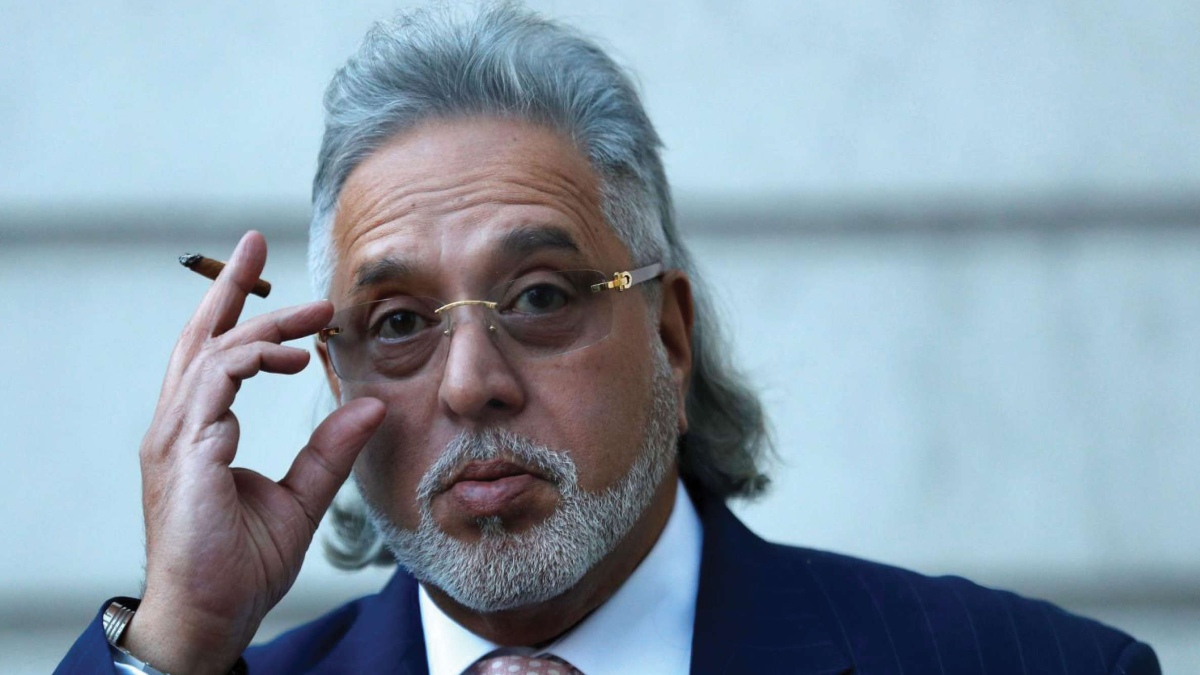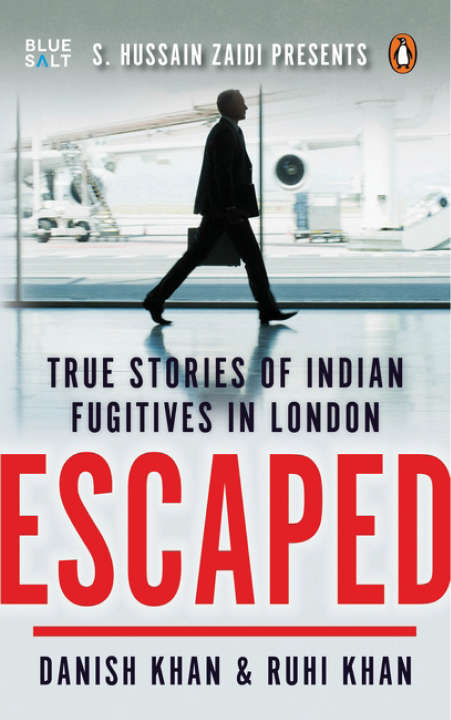
On 18 December 2015, the sky in Goa erupted with a million sparkles. Did the New Year celebrations come early in the party capital of India? Of course not. The King of Good Times, liquor baron Vijay Mallya, was celebrating his sixtieth birthday. Four hundred guests comprising the rich and famous, the super-rich and the infamous, politicians and actors, sport stars and fashionistas, singers and entrepreneurs and, of course, top models, flocked to the palatial Kingfisher villa on Candolim beach, often compared to Elvis Presley’s Graceland or Hugh Hefner’s Playboy Mansion.

‘It’s bigger than most hotels. It’s cooler than any house. It’s James Bond, it’s Playboy Mansion, it’s the land of plenty in white concrete and glass,’ described cricketer Chris Gayle in his biography Six Machine: I Don’t Like Cricket… I Love It. The 12,350 square feet villa hosted a majority of the guests for his birthday bash with the rest staying at the ultra-luxe Taj Holiday Village Resort & Spa, from where one could walk along a beautiful private stretch of the sun-kissed beach to get to Mallya’s abode. Star performers for the evening included hugely expensive pop sensation Enrique Iglesias who was flown in especially to take everyone’s breath away with his vocals and Bollywood’s Sonu Nigam who sang the ever-popular Hindi birthday song: Tum jiyo hazaaron saal… saal ke din ho pachaas hazaar (May you live for thousands of years… and every year have 50,000 days).
The bash cost Mallya a whopping $2 million or Rs 14 crore. This even when he had avoided paying the employees of his defunct Kingfisher Airlines their salaries and dues for many months citing financial troubles. The irony of this was not lost. ‘We are still not able to understand what you meant when you said “I don’t have money to pay your salaries”,’ the disgruntled employees wrote to their boss.
Mallya was in trouble. His prized Kingfisher Airlines that he had launched with much fanfare when his son Siddharth turned eighteen was defunct since 2012. He owed the banks Rs 9,000 crore and had been declared a wilful defaulter. The taxpayers were getting angry. The politicians were feeling the pressure. The press had few nice things to say about him.
But for those three days in December, Mallya was determined not to let anything upset him as he laughed and danced with his guests. ‘My biggest assets are my friends and they are all here tonight,’ said a beaming Mallya to the crowd wishing him a happy birthday.
LIFE AS A FUGITIVE IN BRITAIN
To understand what Mallya continues to miss will require going back to 18 April 2017 when he was first brought to Westminster Magistrates’ Court. Mallya was bailed on a £650,000 bond, debarred from travelling outside England, and from applying for travel documents. Mallya may have access to all the comforts and riches, but with his wings clipped and movement curtailed, he is just a shadow of his former self. He would have liked to attend F1 races across the world, but now the only option he has is the British Grand Prix at Silverstone. The cricket matches he attended and the odd public appearances he made in London could provide him with neither comfort nor pleasure. This was a case of fame coming back to haunt him across the seven seas.
During the ICC Cricket World Cup in June 2019, as India took on Australia at the Oval in London, the media had expected cricket-crazy Mallya to make an appearance. And so, it seems, had many Indian cricket fans. Dressed in a light blue suit with an opencollared white and blue striped shirt, Mallya accompanied his beau, Pinky Lalwani, looking splendid in a hot pink jacket trimmed with fur and sporting dark shades, and his aged mother Lalitha to the VIP entrance gate at the Oval. He often wears blue suits at the matches, which he says is his way of showing support to the Men in Blue.
No sooner had they got out of their car, than the crowd chanting ‘Chor! Chor!’ (thief, thief) and ‘Paise de!’ (give our money back) began heckling him and his family. A defiant Mallya took out his phone and began recording selfies with the hostile crowd. He later tweeted a picture with his son inside the stadium with the caption: ‘Great to watch cricket with my son and even sweeter to see India’s emphatic victory over Australia’. A similar incident happened in January 2017 during the ICC Champions Trophy when Mallya had gone to watch the match between South Africa and West Indies at the Oval.
Though Mallya tries to have a nonchalant attitude towards people calling him names, in his less guarded moments, the hurt and pain this causes him is obvious to see. On less stressful days at the court, Mallya is happy to indulge in light banter about cricket with journalists outside the court.
Public appearances have never been easy for Mallya since his escape to London. In June 2016, Mallya made an appearance at the launch of Suhel Seth’s book at the London School of Economics and Political Science (LSE) where the high commissioner of India, Navtej Sarna, was a panellist along with UK cabinet minister Jo Johnson, brother of Boris Johnson. Journalist Rishi Majumdar, who was at the LSE event, remembers seeing Sarna quickly make an excuse and leave after spotting Mallya in the audience. Mallya, who was sitting at the back near the exit, came into the room just after the event started. Many like Majumdar found it quite ironic that an event on best practices by CEOs was attended by a man who was believed to have done the exact opposite.
To have an Indian diplomat and a (un)popular offender in the same room was a blunder that sent the ministry of external affairs into a frenzy. Statements were quickly issued that the event had two segments—first, a book launch event where the invitees were determined by LSE, and the second was a reception by the High Commission for a select few guests. ‘Mallya was certainly not an invitee to the reception at the High Commission for which the invitations were issued by the High Commission, and was not present,’ the MEA statement said. LSE also clarified that Mallya was not on its list of invitees.
Mallya was extremely upset with all the fuss created by his simple presence at what was a public event as each organiser denied ever inviting him. He took to Twitter to hit back: ‘Never gate-crashed in my life… I am not a gatecrasher and would never be one; I went for my friend—the author. Sat quietly with my daughter and listened. Headline news and unfounded speculation followed; No evidence, No charge sheet. Before claiming all this, should I not be given a chance to pursue my legal remedies? Most unfair.’
On 18 December 2020, Mallya spent his birthday attending court proceedings in his bankruptcy case, albeit virtually, requesting the judge to release funds from assets frozen by the courts. His counsel told the court that, failing this influx of funds, there was a good chance that Mallya would go unrepresented in the next hearing. The court then agreed to release £240,000 (plus 20 per cent of the value added tax on that amount), a sum that only covered his legal costs until December 2020. Mallya was back in the court in January 2021, requesting further funds. He claimed he had lost his income from the consultancy services that he had provided in recent years. With his life’s earnings frozen by the authorities, he claims he was now facing penury.
There was no sign of Mallya’s return to India when this book went into print in early February 2021. But what is clearly evident is that a man whose life was much celebrated just five short years ago, is now a mere shadow of his larger-than-life persona. There is no doubt that the party king has disappeared from public celebrations just like the fireworks that once lit up the skies, soon melt into the darkness.